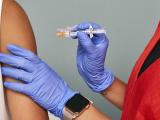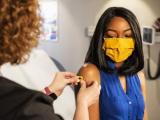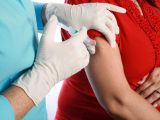Feb 11, 2010
Mumps outbreak continues in New York and New Jersey
An expanding outbreak of mumps that began with an 11-year-old boy who visited the United Kingdom, where measles-mumps-rubella (MMR) vaccinations have declined, has now infected 1,521 children in New York and New Jersey, the Centers for Disease Control and Prevention (CDC) said today in its weekly bulletin. Almost all of the cases have occurred among members of linked Orthodox Jewish communities; most of the patients are boys between the ages of 7 and 18. The CDC hypothesized that the relatively closed social world of the communities and the large family sizes within them have played a role in preventing the disease from spreading further. Girls may not have been vulnerable because the communities' boys and girls attend school separately; in addition, boys are kept in school for additional hours. Many of the affected children had received at least one dose, and in many cases the recommended two doses, of MMR vaccine—a reminder, the agency said, that the mumps component of MMR is less effective at preventing disease than the other two components.
Feb 11 CDC MMWR article
Deaths from anthrax-contaminated heroin grow to 11
The number of deaths in Europe from exposure to anthrax-contaminated heroin grew to 11 after English officials announced that a patient from Blackpool died, the London-based Guardian reported yesterday. Since early December, cases linked to the contaminated heroin have been detected in Scotland (19), England (2), and Germany (1). The German patient died in December, but the case was only recently linked to the outbreak when scientists found that the anthrax was "indistinguishable" from the type found in the Scottish patients. Health authorities are investigating if the heroin was contaminated at its likely source in Afghanistan or with cutting agents used by drug dealers closer to Europe. Officials haven't found a connection between the Scottish cases and those in England and Germany, raising fears of widespread contamination. An expert with England's Health Protection Agency said there was "negligible" risk to non-users of heroin, noting that person-to-person of anthrax is extremely rare. Another NHS official advised heroin users to stop taking the drug or to watch closely for unusual symptoms such as rashes, swelling, severe headaches, or high fever.
Feb 10 Guardian story
Study finds racial disparities in nursing home vaccinations
Researchers from California have found evidence suggesting racial disparities in vaccination coverage in US nursing homes. They reported their findings yesterday in an early online edition of the American Journal of Public Health. They reviewed 2004 survey data on white (11,488) and black (1,174) nursing home patients to explore how many received the seasonal flu vaccine in 2003 and 2004, who had ever received a pneumococcus vaccine, and if the vaccinations were documented. They found that black nursing home residents had a 13% lower vaccination rate and a 5% higher undocumented rate for the flu vaccine. For the pneumococcus vaccine, blacks had a 15% lower vaccination rate and a 7% higher undocumented rate. The authors suggest that targeted interventions could help boost vaccination rates for minority nursing home residents.
Feb 10 Am J Public Health abstract

















